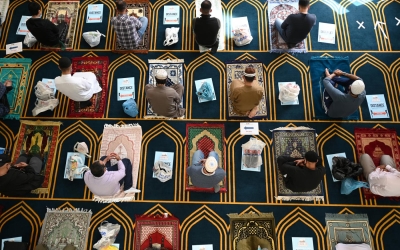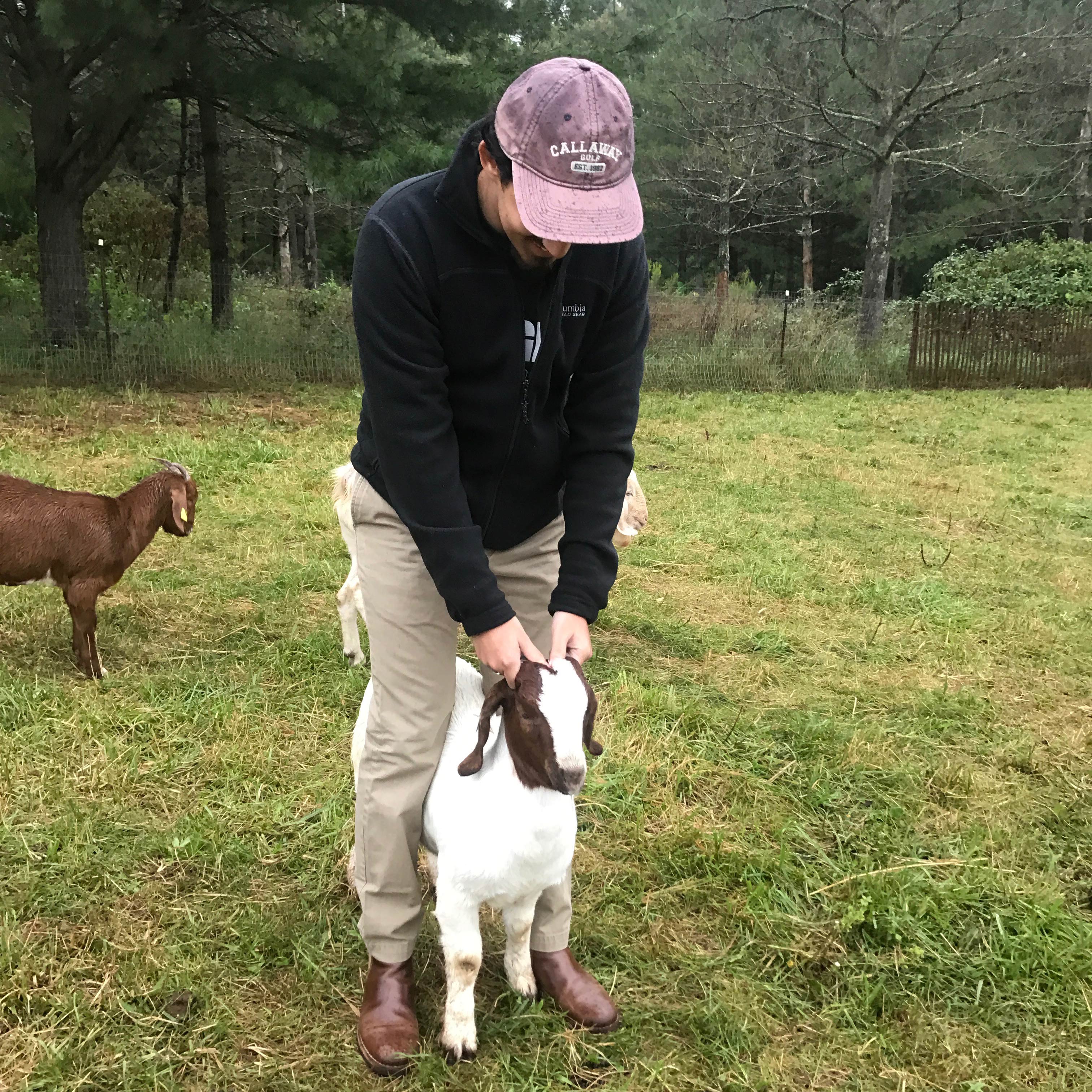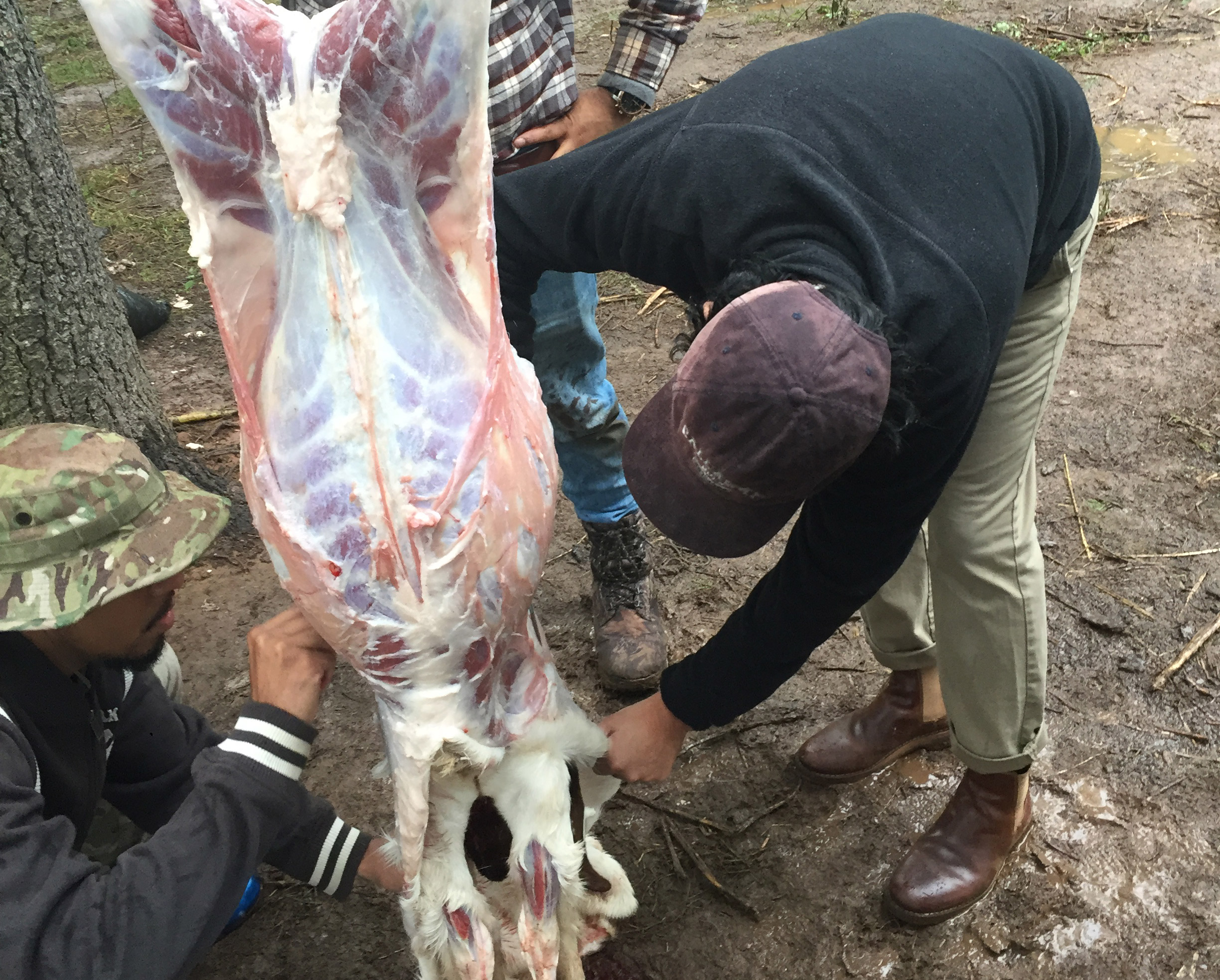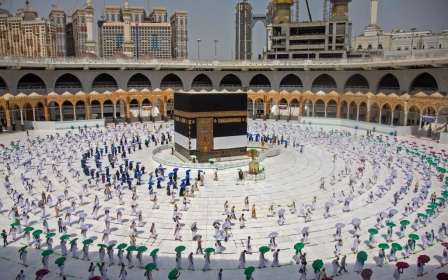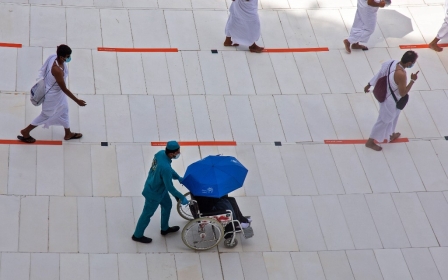Going back to our roots: Celebrating Eid on rural farm in Maryland
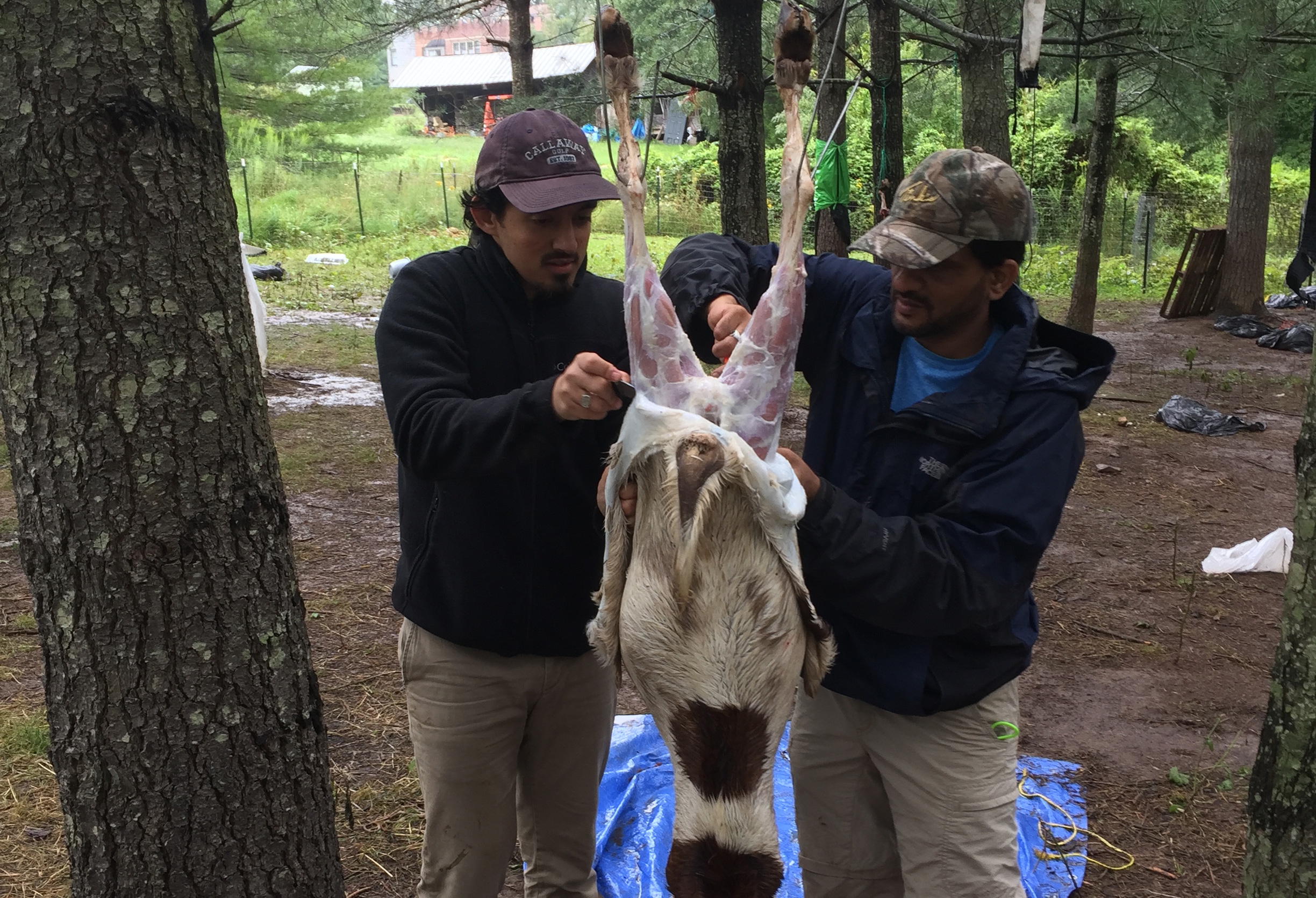
Out in the open, far away from man-made structures and urban life, Maaz Ahmad says he's found a place to celebrate Eid and escape the coronavirus pandemic's cold restrictions.
On Friday, as more than one billion Muslims mark Eid al-Adha - the Festival of Sacrifice - Ahmad will meet up with a few of his close friends on a small farm in Maryland to celebrate the end of the Hajj.
This year, almost every aspect of the three-day festival has been affected by the pandemic.
Most mosques in the US are shut, with the faithful having to perform the customary Eid prayers at home.
Families are hosting small gatherings instead of organising large functions, and those that are hosting an extended family are urged to take precautionary measures including abandoning the age-old rituals of handshakes and hugs.
New MEE newsletter: Jerusalem Dispatch
Sign up to get the latest insights and analysis on Israel-Palestine, alongside Turkey Unpacked and other MEE newsletters
For Ahmad, a 26-year-old teacher from Centreville, Virginia, who loves the outdoors, a chance to engage in a communal religious experience is something he has looked forward to embracing.
Ahmad said he and his friends will meet up at the farm early in the morning for Eid prayer, dressed in their best clothes, as if they were to go to the mosque. Soon after, they will commemorate the story of Abraham - who according to Muslim tradition was commanded by God to sacrifice his son, but before he could do so, God relented and told him to replace his son with a ram - by sacrificing an animal in an act known as qurbani.
"We're going to social distance, but just the idea of physically seeing someone you haven't seen in months, or you don't see that often, is an exciting thought.
"[We're having this event] because it's still possible to have a sense of community and hold communal activities, even though there are restrictions."
The United States is one of the countries worst-affected by the pandemic, with almost a quarter of all global coronavirus fatalities.
President Donald Trump says case numbers are so high because the country has been so successful in testing, but the death toll and new peaks in California, Texas and Florida tell a different, and grim, story.
"We're going to be standing far apart, and there won't be Eid hugs," said Ahmad. "Some of us will miss that, some of us won't. I personally liked the post-Eid prayer hugs."
On Eid, many Muslims in the US do one of two things for the qurbani: send money abroad to have the sacrifice made on their behalf, or go to a large farm or slaughterhouse and collect meat from there.
Obaid Rehman, who has been planning this year's trip with Ahmad, said there needs to be greater efforts to conduct the slaughter in accordance with Islamic traditions.
The halal meat industry has been criticised by animal welfare activists and far-right groups who say the practice is inhumane, as it does not require animals to be stunned before they are killed.
Rehman says he uses the opportunity to head to the farm to teach his friends about how to complete the ritual sacrifice.
"That knowledge, I think, is crucial, because it connects one to their tradition, which is extremely important," said Rehman.
'That knowledge, I think, is crucial, because it connects one to their tradition, which is extremely important'
- Obaid Rehman
He noted that when you perform the slaughter yourself, "you value the fact that that's a life".
"So when you eat that meat, you're not gonna waste it as if someone [would] so easily waste meat that came in a plastic-wrapped tray."
Facing east towards Mecca, and lifting the animal's head in the same direction, Ahmad will quickly say a prayer before Friday's sacrifice and recite - Bismillah Allahu Akbar, or "in the name of God, God is great" - before swiftly cutting the goat's throat.
Once that is completed, the animal will be hung by its back legs to allow their blood to drain.
"As long as your knife is sharp and you don't hold back - you should be good," said Ahmad, who has done the sacrifice twice before.
"If you get scared, that's when the animal gets hurt.
"The best metaphor I can think of is when you're driving, and your mum or someone gets scared and freaks out - that impacts your driving, making you a worse driver."
According to Ahmad, the rest of the day consists of hard labour, with the animal having to be skinned and cut into small enough pieces to be placed in a cooler, and then taken back home.
An important part of the qurbani is donating meat to those less fortunate, but with no charities or food banks accepting raw meat, especially during the pandemic, most of the meat will be distributed among the group and their families, he said.
As such, all of the group members have opted to send money overseas, to complete their religious obligations.
Still, Rehman hopes that through building traditions like this, urban Muslims can stay connected with the spiritual aspects of the qurbani.
"It's important for us to realise that we're laying down roots here for future generations," he said.
"And if we don't lay these roots down in the proper way, then the blame will lay upon us for not transferring the most important principles and practices from our religion to others."
Middle East Eye delivers independent and unrivalled coverage and analysis of the Middle East, North Africa and beyond. To learn more about republishing this content and the associated fees, please fill out this form. More about MEE can be found here.


